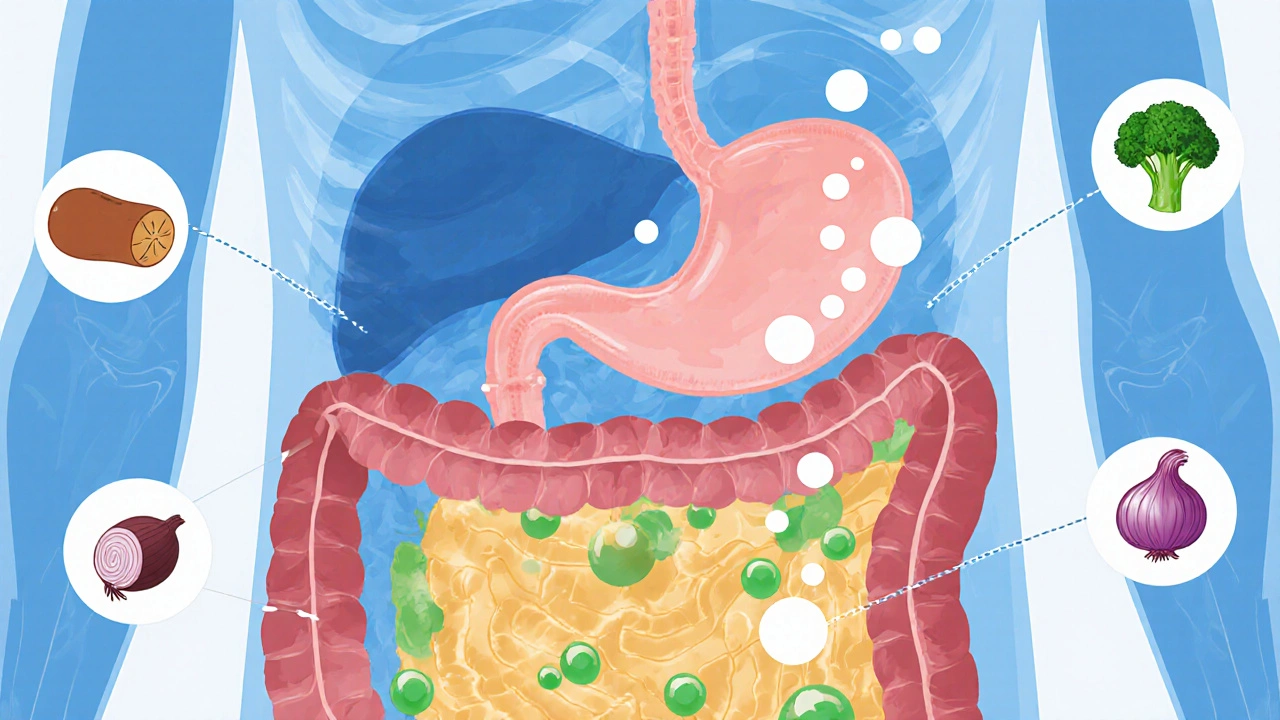Bloating: Understanding the Swell and How to Find Relief
When dealing with Bloating, a sensation of a stretched abdomen often caused by trapped gas, fluid retention, or slow digestion. Also known as abdominal bloating, it is closely linked to Gas, air that accumulates in the gastrointestinal tract and Indigestion, discomfort after eating due to incomplete breakdown of food. Common Dietary triggers, foods such as beans, cruciferous vegetables, carbonated drinks, and high‑fat meals often set off this chain reaction. In everyday life, bloating shows up after a big lunch, a night of drinking, or during hormonal shifts, making simple tasks feel harder. Understanding that bloating encompasses gas buildup, requires awareness of eating habits, and is influenced by digestive health helps you spot the root cause before it flares up.
Practical Steps to Ease Bloating
First, slow down when you eat. Chewing thoroughly reduces the amount of air swallowed and gives enzymes a better chance to work, which cuts down on gas formation. Next, watch your dietary triggers: keep a food diary for a week and note any meals that precede a bloated feeling. If beans or broccoli repeatedly cause trouble, try soaking them longer or swapping for lower‑FODMAP options. Hydration matters, too—drinking water keeps the digestive tract moving, while excessive caffeine or alcohol can irritate the lining and worsen indigestion. Adding a probiotic or a spoonful of plain yogurt introduces good bacteria that help break down fermentable carbs, easing both gas and discomfort.
Second, move your body. A short walk after meals encourages peristalsis, the wave‑like muscle contractions that push food through the gut, preventing it from sitting too long and fermenting. If you’re stuck at a desk, try gentle seated twists or knee‑to‑chest stretches; these motions can release trapped gas and relieve pressure. Over‑the‑counter options like simethicone can be useful for occasional flare‑ups, but they address symptoms rather than the cause. For chronic bloating, consider checking for underlying conditions such as irritable bowel syndrome or small intestinal bacterial overgrowth—both can amplify gas and indigestion. Finally, manage stress. The gut‑brain axis means anxiety can slow digestion, leading to more gas and swelling. Simple breathing exercises, mindfulness, or a short meditation session can calm the nervous system, letting your stomach settle.
With these insights, you’ll be ready to identify why your belly feels puffy and apply tricks that actually work. Below you’ll find a curated set of articles that dive deeper into specific causes, medication comparisons, and natural remedies—all aimed at giving you a clearer path to a flatter, more comfortable day.
Flatulence Explained: Causes, Symptoms & Effective Treatments
Learn why flatulence occurs, spot related symptoms, and discover practical diet, lifestyle, and medical treatments to reduce unwanted gas.

